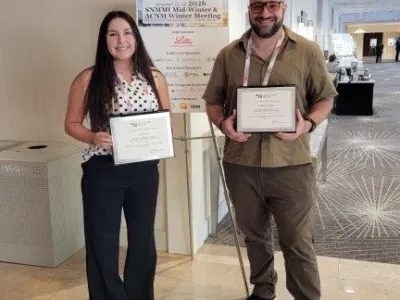An Oregon Institute of Technology faculty and student research team has been awarded a $1M federal grant to better understand the impact of poor air quality in Southern Oregon and to help hospitals prepare for capacity burdens that affect their operations. This grant is one of the largest research awards the university has received in support of interdisciplinary research. With this additional funding, the group will establish a new research center and expand previous research into the Klamath Basin.
“We are very proud of our faculty and student researchers and the direct impact their research has on the well-being of our communities,” said Oregon Tech President Nagi Naganathan. “The success of this project and the way it has grown shows its relevance and importance to Southern Oregon. Our strategic plan highlights Oregon Tech’s role as an engaged university; this project is a fitting example. We thank United States Senators Merkley and Wyden for their advocacy and support of this project.”
The air quality research began in 2019 as a collaboration between four academic programs — Respiratory Care, Environmental Sciences, Population Health Management, and Geomatics. Working with Asante Rogue Regional Medical Center and the Oregon Department of Environmental Quality, the group compiled data from research in the Rogue Valley to create tools for hospitals.
Oregon Tech project director Kyle Chapman, Ph.D., associate professor of Sociology and Population Health, along with Natural Sciences Instructor Kerry Farris, will use the new grant to establish Oregon Tech’s Center for Advancing Interdisciplinary Research on the Environment and Health - the AIRE Center. In addition to supporting research personnel at the Center, funds will support purchasing new instrumentation to measure indoor air quality and the chemical composition of smoke.
Dr. Chapman said the funding will support project expansion in four ways.
“First, the study will look beyond just respiratory illnesses to include cardiovascular conditions. Second, the data will be used to design public health interventions. Third, the research team will replicate all previous research efforts in the Klamath Basin. Lastly, the project will begin collecting a range of new measures related to air quality, including indoor residential air quality during wildfires and the chemical composition of particulate matter outside and inside homes,” he said.
“Many thanks go to the Oregon Tech original faculty team consisting of Dr. Adelaide (Addie) Clark (Natural Sciences), Dr. Kyle Chapman (Sociology and Population Health), and Sarah Fitzpatrick (Respiratory Care),” said Oregon Tech Provost Joanna Mott. “Their innovative, interdisciplinary applied research project with students led to this successful award. Additional contributors at Oregon Tech, including many other faculty and staff, were critical in helping prepare the grant application. Their contributions to this project are much appreciated.”
A pilot research effort was originally funded through the Oregon Tech Foundation’s Student and Faculty Innovation Fund and other grants that Dr. Chapman and Dr. Clark received related to air quality. The Innovation Fund continues to inspire ingenuity and collaboration that can deliver impactful outcomes. To learn more about Foundation gifts in action, visit https://www.oit.edu/development/oregon-tech-foundation/your-gift-in-action.
###








